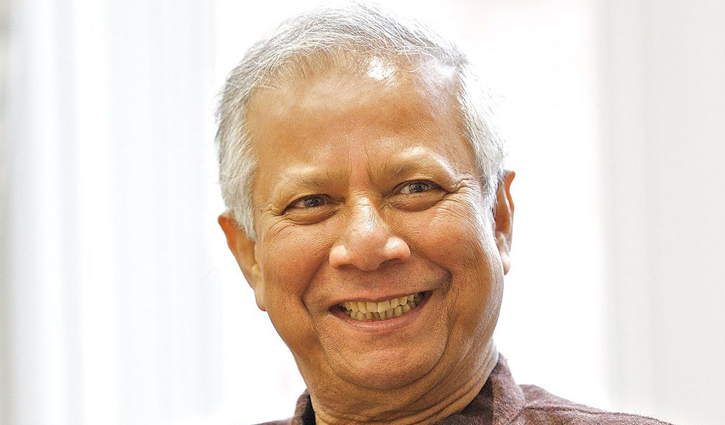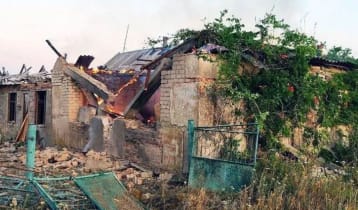Time Magazine article
Yunus on the race to build Bangladesh 2.0
News Desk || risingbd.com

Chief Adviser Professor Muhammad Yunus
Dhaka looks reborn after a fresh lick of paint. Though this is not your typical municipal spruce-up. The sprawling Bangladeshi capital has been festooned with garish political murals celebrating August’s student-led ouster of reviled Prime Minister Sheikh Hasina Wazed.
Mile upon mile of concrete balustrades are daubed with caricatures of the deposed autocrat with fangs and devil horns, slogans extolling “Gen-Z, the real heroes,” and vows to “flush shirts from our society.”
It’s not language that sits easily with 84-year-old Muhammad Yunus, though the Nobel laureate says he can forgive the students’ salty exuberance. “The words are very explosive,” Yunus tells TIME with a chuckle. “These young minds are full of ideas and ambitions and aspirations. They depicted their future in those murals and it’s something much greater than Bangladesh has ever seen.”
The task of turning those aspirations into reality now falls to Yunus, who was tapped to serve as “chief adviser” to the interim government though for all intents and purposes is Bangladesh’s new leader. His job is to piece back together South Asia’s second biggest economy of over 170 million people and shepherd the motley band of student leaders, military generals, Islamists, and opposition politicians who forced Hasina’s departure toward fresh elections.
A six-pronged reform process is underway, focusing on the election system, police administration, judiciary, anti-corruption commission, public administration, and national constitution.
“The previous government created this environment of total oppression, denial of everything, killing at random, disappearance of people, destroying every single institution,” he says. “It was a fascist regime.”
Indeed, more than 1,500 people were killed in clashes between protesters and security forces during July and August and many more wounded. (In addition, Yunus claims 3,500 people were extrajudicially disappeared during the last 15 years of Hasina’s reign.) The uprising began with peaceful demonstrations against employment quotas for regime loyalists, but a heavy-handed crackdown ignited a powderkeg of rage against inequality and political repression that brought tens of thousands of mothers and daughters, bankers and beggars, united onto the street.
As protesters encircled her official residence in Dhaka, Hasina fled in a military helicopter to India, where she and her cabal of key advisers continue to rail against her ouster. Yunus revealed that he would be seeking Hasina’s extradition after prosecutors issued a warrant for her part in the violence, though few believe Indian Prime Minister Narendra Modi would comply.
Yunus grew to global renown in the 1970s for pioneering poverty-reducing microcredit. What began with a single $5 loan to a woman weaving bamboo stools in his home city of Chittagong has since spread to over 100 countries. Over four decades, Yunus’s Grameen Bank disbursed some $37 billion in collateral-free loans to over 10 million of the world’s poorest people. More than 94% of loans worldwide have gone to women, who suffer disproportionately from poverty and are more likely to use earnings to help their families than men.
It’s a life’s work that won Yunus the sobriquet “banker to the poor” as well as the 2006 Nobel Peace Prize, the U.S. Presidential Medal of Freedom in 2009, and the Congressional Gold Medal a year later. But Yunus’s global fame rankled Hasina, who derided him as a “bloodsucker,” and her government launched over 200 legal cases—including over alleged forgery, money laundering, and embezzlement—against him in a bitter and bizarre vendetta.
When TIME last spoke with Yunus in June, he was facing six months in prison on a sham conviction for violating Bangladesh’s labor laws. But Hasina’s ouster both expunged his legal travails and presented a late career change as his tormentor’s successor. “At first, I tried to skip the responsibility,” he says. “I said, ‘Find someone else.’ But later I said, ‘OK, you have given your lives, your friends have given their lives, so I will do the best I can.’”
The interim government’s ambiguous legality has also meant that U.S. backing—as demonstrated by Yunus’s meeting with President Joe Biden in September—has been key to retaining the engagement of institutions such as the IMF and World Bank. But Donald Trump’s impending return to the White House in January has spurred a sense of deep anxiety. In the wake of Hasina’s ouster, there were sporadic attacks on Hindus and other minorities that were spun and amplified by the Awami League as evidence that radical Islamists had seized control.
On Oct. 31, Trump posted on X to condemn the “barbaric violence against Hindus, Christians, and other minorities who are getting attacked and looted by mobs in Bangladesh, which remains in a total state of chaos.”
Both the Awami League and influential Indian Americans are understood to be lobbying Trump to impose sanctions on Bangladesh, for which the U.S. is top export destination. Compounding matters, Yunus has his own baggage with Trump, owing to his close friendship with Hillary Clinton, publicly lamenting her 2016 election defeat: “Trump’s win has hit us so hard that this morning I could hardly speak. I lost all strength.”
Still, Yunus is confident that he can find common ground with the President-elect despite their divergent worldviews. “Trump is a businessman; we are in business,” he says. “We are not asking for free money to help us out of some crisis; we want a business partner.”
“They formed six reform commissions without discussion with any of the political parties,” says A K M Wahiduzzaman, information and technology affairs secretary of the main opposition Bangladesh Nationalist Party (BNP). “This is not a good sign. This is a sign of an autocratic government.”
Wahiduzzaman wants a timeline and roadmap to elections to be unveiled as soon as possible. Yunus won’t be rushed, though. “I don’t have a date,” he says. “First we have to fix the rails so that the train goes in the right direction.”
It’s a race to enact meaningful reforms before the clamor for elections reaches fever pitch. In September, the Asian Development Bank lowered its growth forecast for Bangladesh from 6.6% to 5.1% due to the political tumult as well as recent catastrophic flooding. The BNP appears the government-in-waiting though has a reputation for graft and retributive politics to rival the Awami League. (Wahiduzzaman insists any corruption within his party is limited to a tiny minority and offenders are brought to book.)
If unrest and paralysis continue, a beleaguered populace may even look more fondly at Hasina’s record. Bangladesh was the Asia-Pacific’s fastest growing economy over the past decade, with GDP rising from $71 billion in 2006 to $460 billion in 2022. Yunus knows that improving livelihoods is the only sure way to buy the necessary time to rebuild state institutions, so autocracy can never return—a new Bangladesh that prospers long after those murals have sun-bleached and blistered. “Reform is the core of the whole revolution,” says Yunus. “That’s why we call it Bangladesh 2.0.”
Source: Time Magazine
Dhaka/Mukul



















